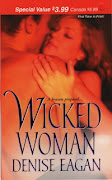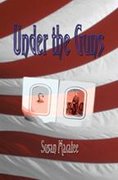So you think the Victorians were prudish, uptight people in high-necked clothing, huh? Well I suppose at certain times during the period, and with certain people, that description is apt. Certainly there were quite a few “purity writers” during the 19th century. On the other hand, there was rampant prostitution, an increase in birth control devices, and the free love movement.
The free love movement started in the 1850’s with the help of Stephen Pearl Andrews who believed that “individual freedom, instead of, or in predominance over, social constraint, as the safer and better medium through which to conduct to the higher development of mankind” (http://praxeology.net/HJ-HG-SPA-LMD-17.htm) I’m not personally sure if all of the free lovers believed that they were working towards the higher development of mankind, however. Consider a speech given by Victoria Woodhull in 1871, before she ran for president:
“Yes, I am a Free Lover. I have an inalienable, constitutional and natural right to love whom I may, to love as long or as short a period as I can; to change that love every day if I please, and with that right neither you nor any law you can frame have any right to interfere. And I have the further right to demand a free and unrestricted exercise of that right, and it is your duty not only to accord it, but, as a community, to see that I am protected in it. I trust that I am fully understood, for I mean just that, and nothing less!" And the Truth Shall Make You Free (November 20, 1871)
Sounds very little like “for the good of mankind” to me. It sounds to me like Woodhull, (and probably quite a few other free lovers) were concerned more about government interference in the bedroom than the good of mankind. They obviously didn’t have a whole lot of faith in monogamy or marriage. Interesting, as from what I can see many of them (Woodhull not included—she was married 3 times) had fairly long, stable marriages.
So who were the free lovers? As mentioned, Woodhull, Andrews, Mary Gove Nichols and her husband. There were anarchists and feminists, Angela and Ezra Haywood, Moses Harman, who spent two years in jail for publishing obscenity under the Comstock Laws and his daughter Lillian. ( http://en.wikipedia.org/wiki/Free_love ) And of course John Humphrey Noyes, who started the Oneida Community, an 1850’s commune that practiced “complex marriage”. (http://www.nyhistory.com/central/oneida.htm) It lasted 30 years and was, regardless of the “complex marriage” issue, a very religious community. Just the not sort of religion you’d have expected in 1850. . . .
All right, so all of this is very interesting, right? 1970’s kind of free love, complete with communes, in the 1850’s—but how? If a woman practiced free love, wouldn’t that mean pregnancy? And how on earth was she supposed to support a child without a husband? After all, women weren’t exactly fighting men for the corner office at this point in history. Women could scarcely support themselves, never mind a child. Well they did have birth control. It was not the Pill, granted, and not as reliable as today by any stretch. But they did have it, and it was legal and available until 1873, when the Comstock Laws--obscenity laws that made pretty much anything relating to sex illegal--were passed. But that is another post, coming soon to a blog near you. . . .
Books on Victorian Free Love:
Sex Radicals and the Quest for Women’s Equality, Joanne Passet
Free Love: Marriage and Middle-Class Radicalism in America, 1825-1860, John Spurlock
Wednesday, April 05, 2006
Subscribe to:
Post Comments (Atom)









2 comments:
Mary Walker, M.D. raised in Oswego, New York adopted the reform or bloomer style of dress early in life. Her parents believed corsets, crinolines, petticoats and long skirts to be unhealthy garb for women. She attended Syracuse Medical College graduating in 1855 and at the age of 29, tried to join the Union Army as a surgeon. She met much opposition, but was able to serve as a Union doctor, later winning the Congressional Medal of Honor.
You may be interested in Stephen Pearl Andrews' "The Science of Society" which I've posted online: http://classicalliberalism.blogspot.com/
He also wrote the introduction to Thomas L. Nichols' "Woman" which is now part of the gooble digitized books project.
Cheers!
Just Ken
Post a Comment